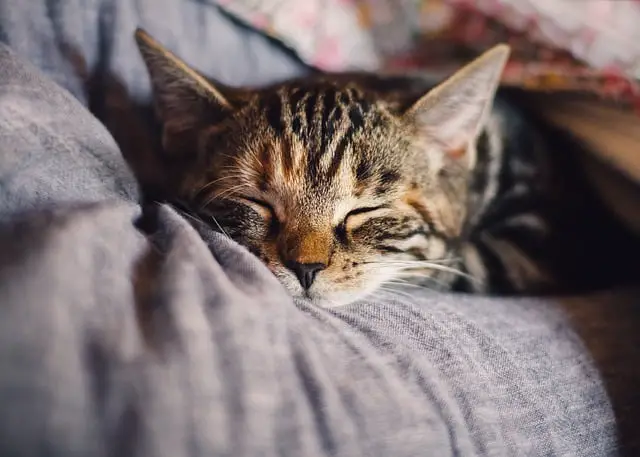As responsible cat owners it is our duty to prioritize the health and well-being of our feline companions. One crucial aspect of maintaining their overall health is ensuring they receive essential vaccinations and regular health check-ups. In this informative guide we explore the importance of vaccinations and health checks for cats highlighting the significant role they play in preventing potential purr-ils and keeping our beloved pets happy and healthy.
Understanding Vaccinations: Shielding Against Disease
Vaccinations are an essential component of preventive healthcare for cats. They work by stimulating the immune system to produce protective antibodies against specific diseases. By vaccinating our cats we can help shield them from potentially life-threatening illnesses. Here are some key vaccinations recommended for cats:
- Rabies: Rabies is a viral disease that affects both cats and humans. It is transmitted through bites from infected animals and poses a severe threat to health. Vaccinating cats against rabies not only protects them but also helps prevent the spread of the disease to other animals and humans.
- Feline Panleukopenia (Feline Distemper): Feline panleukopenia is a highly contagious viral disease that primarily affects kittens and unvaccinated cats. It can cause severe gastrointestinal issues and can be fatal. Vaccination against feline panleukopenia is crucial for the well-being of cats especially those in multi-cat households or environments with a higher risk of exposure.
- Feline Calicivirus and Feline Herpesvirus (Feline Upper Respiratory Infections): These two viruses are common causes of respiratory infections in cats. Vaccination against feline calicivirus and feline herpesvirus helps reduce the severity and frequency of these infections promoting the overall respiratory health of cats.
- Feline Leukemia Virus (FeLV): FeLV is a viral infection that weakens the immune system and can lead to various health complications including an increased risk of cancer. Vaccination is recommended for cats that have a higher risk of exposure such as outdoor cats or those living in households with FeLV-positive cats.
It’s important to note that vaccination schedules and requirements may vary depending on your cat’s age lifestyle and local regulations. Consult with your veterinarian to determine the most appropriate vaccination plan for your cat.
Regular Health Checks: Detecting Issues Early
In addition to vaccinations regular health checks are vital for ensuring the overall well-being of our feline friends. Cats are masters at hiding signs of illness making it crucial to have them examined by a veterinarian on a routine basis. Here’s why regular health checks are essential:
- Early Detection of Health Issues: Routine examinations allow veterinarians to detect any potential health problems early on. They can identify subtle signs of illness perform necessary diagnostic tests and initiate prompt treatment increasing the chances of a positive outcome.
- Preventive Care and Screening: Health checks provide an opportunity to discuss preventive care measures with your veterinarian. This may include parasite control dental care nutrition and behavior management. Additionally your veterinarian may recommend specific screenings or tests based on your cat’s age and health status to detect any underlying conditions before they become more serious.
- Tailored Advice and Guidance: Each cat is unique and regular health checks allow your veterinarian to provide personalized advice and guidance based on your cat’s individual needs. They can address any concerns or questions you may have and provide recommendations to optimize your cat’s overall health and well-being.
Building a Strong Veterinary Partnership
Establishing a strong partnership with your veterinarian is crucial for providing the best possible care for your cat. Here are some tips to foster a collaborative relationship with your veterinary team:
- Regular Check-ups: Schedule routine health check-ups as recommended by your veterinarian. Follow the vaccination schedule and ensure your cat receives necessary booster shots to maintain their protection against diseases.
- Open Communication: Be open and transparent with your veterinarian about any changes or concerns you have noticed in your cat’s behavior appetite or overall health. This information can help them make accurate assessments and provide appropriate care.
- Follow Recommendations: Adhere to your veterinarian’s recommendations regarding preventive care vaccinations nutrition and parasite control. They have your cat’s best interests at heart and can provide valuable guidance based on their professional expertise.
- Stay Informed: Stay up-to-date with the latest information on cat health and care. Attend educational seminars or workshops read reputable sources and ask your veterinarian for reliable resources to expand your knowledge and make informed decisions.
By prioritizing vaccinations regular health checks and fostering a strong veterinary partnership we can provide our cats with the best possible care and protect them from potential purr-ils. Remember a healthy cat is a happy cat!

Hi, I’m Jodie! I’m a spain-Moroccan writer with a passion for imagination, adventures, magic and stories with heart.
Please don’t hesitate to contact me for any questions, suggestions, comments or feedback.
















Add comment